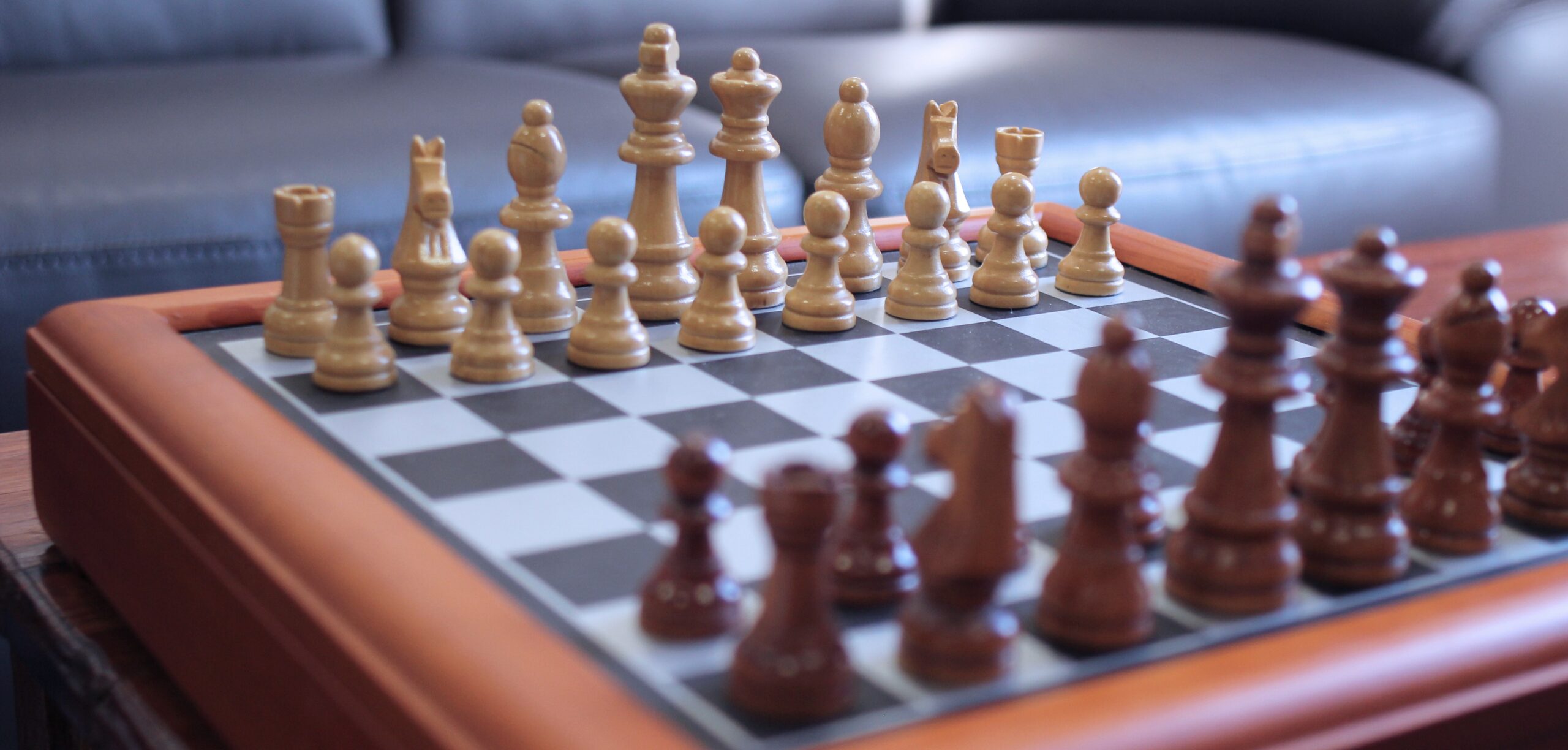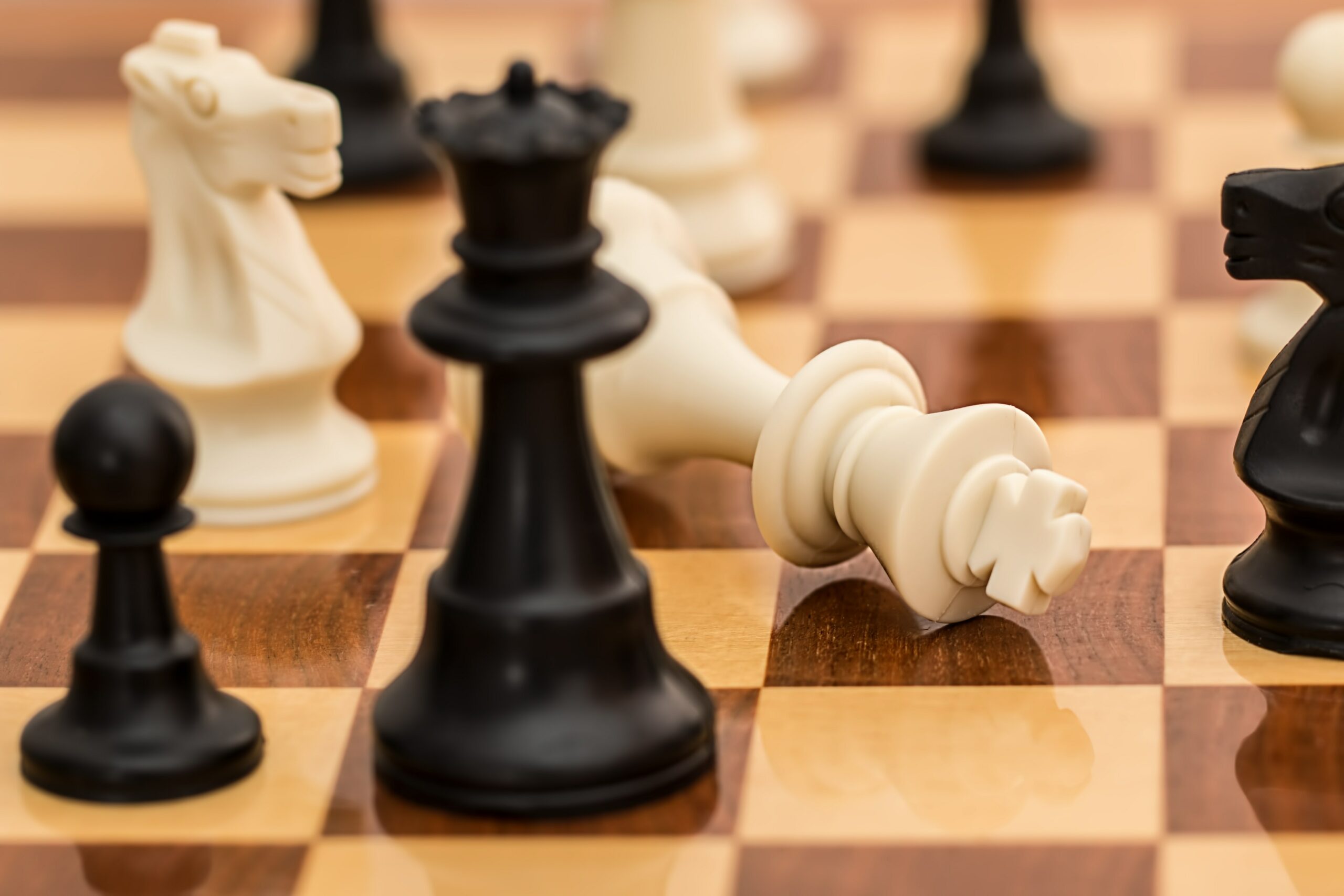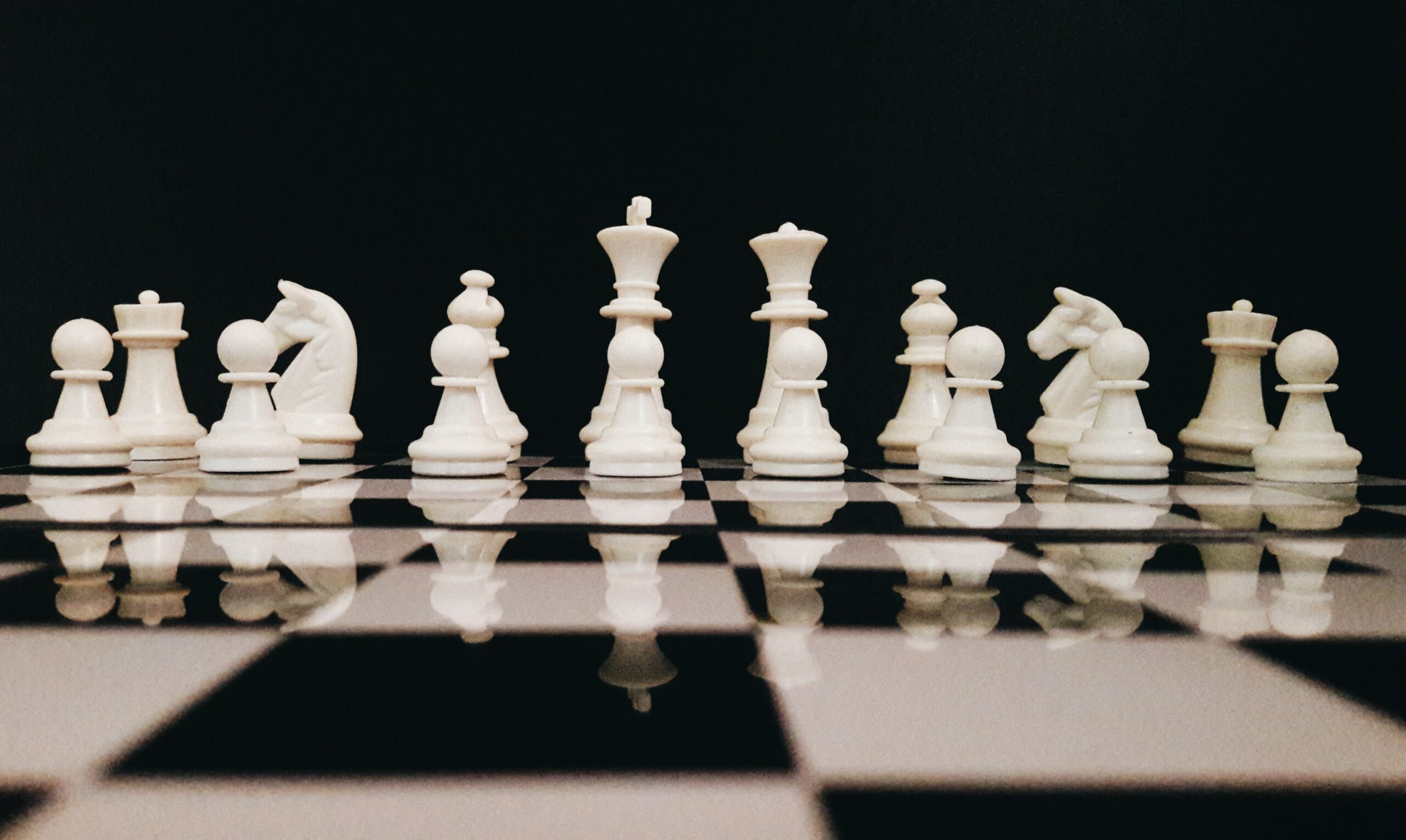Chess, a game that has captivated minds for centuries, holds a profound resemblance to the complexities of life itself. In the realm of chess, players immerse themselves in a battlefield of strategic moves, sacrifices, and calculated risks.
Just like life, the game of chess demands a keen understanding of decision-making, resilience, and the ability to adapt to ever-changing circumstances. This article delves into the fascinating parallels between life and chess, unraveling valuable insights that can be applied to both the chessboard and the journey of life.
Is Life Just a Game of Chess?
Life, much like a chess game, unfolds with a myriad of possibilities and choices. Every decision made can have far-reaching consequences, much like the moves on a chessboard. The chessboard becomes a reflection of life’s intricacies, where the pieces symbolize different aspects of our journey.
Each move in chess shapes the outcome, just as our choices and actions shape our destiny. Understanding the similarities between life and chess can offer valuable perspectives on navigating the challenges that come our way.
What Can Chess Teach Us About Decision-Making?
Chess is a game that offers valuable lessons about decision-making, which can be applied to various aspects of life. Here are some key insights that chess can teach us about decision-making:
-
Analysis: Chess requires players to analyze the board, evaluate different options, and anticipate future consequences. Similarly, in decision-making, taking the time to analyze the situation, gather information, and consider potential outcomes can lead to more informed choices.
-
Risk Assessment: Chess players must assess the risks associated with each move. They weigh the potential benefits against the potential drawbacks. In decision-making, it is essential to assess risks and rewards, understanding that calculated risks can sometimes lead to great rewards.
-
Long-Term Thinking: Chess is a game of long-term strategy. Players must consider the overall game plan and how each move fits into the larger picture. Likewise, in decision-making, thinking beyond immediate results and considering the long-term implications can help make choices that align with broader goals.
-
Consequence Evaluation: In chess, every move has consequences. Players must evaluate potential outcomes and anticipate how their opponents might respond. Similarly, in decision-making, considering the potential consequences of each choice and evaluating the ripple effects can aid in making more thoughtful decisions.
-
Flexibility: Chess players need to be adaptable and adjust their strategies based on changing circumstances. They must be open to alternative moves and be willing to revise their plans. In decision-making, being flexible and open to new possibilities can lead to innovative solutions and better outcomes.
How Does Strategy in Chess Mirror Real-Life Challenges?

Strategy forms the foundation of success in both chess and life. In chess, players devise plans to control the board, outmaneuver opponents, and seize opportunities. Likewise, in life, having a well-defined strategy helps us navigate challenges, achieve goals, and maximize our potential.
Chess teaches us the art of strategic thinking, emphasizing the importance of foresight, adaptability, and the ability to adjust our plans when necessary.
Are There Similarities Between Sacrifices in Chess and Sacrifices in Life?
Chess masters often make sacrifices, willingly giving up valuable pieces to gain a strategic advantage. This concept of sacrifice carries a profound parallel to life. In pursuit of our dreams and aspirations, we often encounter situations where sacrifices must be made.
Chess teaches us that sacrifices can lead to greater gains, enabling us to let go of what is good to achieve something better. Learning to make calculated sacrifices can be a transformative skill in both the game of chess and the game of life.
How Can We Apply Chess Tactics to Overcome Obstacles?
Obstacles are an inherent part of life, and chess equips us with valuable tactics to overcome them. Chess teaches us to think creatively, find hidden opportunities, and devise innovative solutions.
Adopting the problem-solving strategies of chess can train our minds to tackle challenges with resilience, determination, and resourcefulness. The lessons learned from chess empower us to approach obstacles as puzzles to be solved, rather than insurmountable barriers.
What Lessons Can We Learn from Chess Masters?
Chess masters have honed their skills through years of practice, dedication, and strategic thinking. Studying their approach can offer profound insights into achieving success in life.
Chess masters exemplify qualities such as discipline, patience, perseverance, and the ability to learn from mistakes. Emulating these traits can elevate our own performance, both in the game of chess and in the pursuit of our personal goals.
| Life Aspect | Chess Parallel | Key Takeaway |
|---|---|---|
| Decision-Making | Evaluating positions and making moves | The importance of analyzing options before taking action |
| Strategy | Planning and executing a winning game plan | Strategic thinking for achieving goals in real-life situations |
| Sacrifices | Giving up valuable pieces for a tactical advantage | The potential benefits of making sacrifices in pursuit of success |
| Visualization | Anticipating future moves and outcomes mentally | The power of visualizing desired outcomes in real-life scenarios |
| Resilience | Bouncing back from setbacks and learning from losses | Developing resilience to overcome challenges and grow |
How Does Patience Play a Role in Both Chess and Life?
Patience plays a vital role in both chess and life, acting as a guiding force in achieving success. In the game of chess, impulsive moves often lead to disastrous consequences. Patience allows players to carefully evaluate positions, anticipate opponents’ strategies, and plan their moves accordingly.
Similarly, in life, impatience can hinder progress and cloud judgment. In cultivating patience, we develop the ability to wait for opportune moments, make thoughtful decisions, and ride out challenging times. Patience empowers us to think long-term, stay focused on our objectives, and navigate the complexities of both chess and life with resilience and grace.
Can Chess Help Develop Critical Thinking Skills?
Critical thinking is a fundamental skill that enables us to analyze situations objectively, evaluate options, and make informed choices. Chess acts as an exceptional training ground for developing critical thinking abilities.
The game demands logical reasoning, pattern recognition, and the ability to foresee consequences. Engaging in chess sharpens our analytical skills, enhances our problem-solving capabilities, and cultivates a strategic mindset that can be applied to various aspects of life.
How Does Visualization Impact Success in Chess and Life?

Visualization plays a pivotal role in both chess and life, influencing the path to success. In the realm of chess, players master the art of visualization by mentally mapping out future moves, anticipating opponent responses, and visualizing potential outcomes.
This practice enhances their ability to devise strategic plans and make informed decisions during the game. Similarly, in life, the power of visualization empowers individuals to manifest their dreams, envision success, and set clear goals.
Mentally rehearsing desired outcomes, individuals cultivate a positive mindset, bolster their focus, and strengthen their determination to achieve success in various endeavors. Visualization, whether on the chessboard or in the journey of life, serves as a powerful tool to harness one’s potential and achieve remarkable results.
What Role Does Adaptability Play in Chess and Life?
Adaptability is a key attribute that propels us forward in the game of chess as well as in life. In chess, the ability to adapt to evolving positions, adjust strategies, and respond to opponent’s moves is crucial for success.
Similarly, in life, being adaptable allows us to navigate unforeseen circumstances, embrace change, and find new paths toward our objectives. Chess teaches us the importance of flexibility, agility, and the willingness to explore alternative approaches when needed.
Are There Lessons in Resilience from Chess?
Resilience, the ability to bounce back from setbacks, is an invaluable quality in both chess and life. Chess players encounter defeats, mistakes, and setbacks throughout their journeys. However, it is through resilience that they learn, grow, and come back stronger.
The game teaches us that setbacks are temporary and that persistence is the key to eventual triumph. Cultivating resilience can face challenges head-on, learn from failures, and forge ahead with determination.
How Can the Concept of “Zugzwang” Be Applied to Life?
“Zugzwang” is a term in chess that refers to a situation where any move made puts the player at a disadvantage. This concept has a parallel in life, where we often encounter situations where every available choice seems unfavorable.
Understanding the concept of “Zugzwang” helps us navigate difficult decisions by recognizing that sometimes the best option is to take a step back, reassess the situation, and seek alternative paths. Chess teaches us to embrace the moments of “Zugzwang” in life, using them as opportunities to think creatively and find innovative solutions.
Can Chess Strategies Enhance Problem-Solving Abilities?
Chess is an extraordinary tool for honing problem-solving abilities. The game challenges us to assess complex situations, break them down into manageable parts, and devise effective solutions.
Engaging in chess, we exercise our minds, improve logical reasoning, and enhance our problem-solving skills. The strategies acquired from chess can be applied to various aspects of life, enabling us to tackle challenges with confidence and find innovative approaches to problem-solving.
What Can Chess Teach Us About Balancing Offense and Defense?
Chess is a delicate balance between offense and defense. Players must simultaneously protect their own pieces while strategically attacking their opponents.
This balance holds a profound parallel to life, where we strive to achieve our goals while navigating potential threats. Chess teaches us the importance of balancing risk-taking with prudence, knowing when to protect ourselves and when to seize opportunities.
How Does the Endgame in Chess Reflect the Essence of Life?

The endgame in chess represents the culmination of all efforts and decisions made throughout the game. Similarly, the endgame in life signifies the realization of our long-term goals and the culmination of our journey.
Chess teaches us to plan ahead, preserve resources, and make calculated moves in preparation for the endgame. By embracing the lessons from the endgame in chess, we can approach life with purpose, determination, and a clear vision of the outcomes we seek.
On the Whole
In the intricate dance between life and chess, we discover remarkable parallels that offer profound insights into navigating the challenges we encounter. Chess teaches us the art of decision-making, strategy, sacrifice, adaptability, resilience, and critical thinking.
By applying these lessons, we can enhance our approach to life, make wiser choices, overcome obstacles, and achieve our goals. As we embark on the journey of life, let us remember that the game of chess is not merely a game, but a reflection of our own existence—an intricate dance where every move matters.




